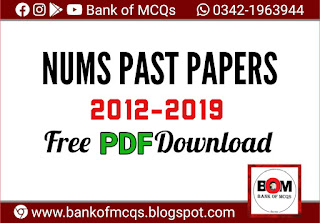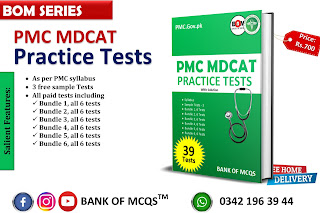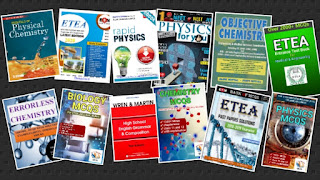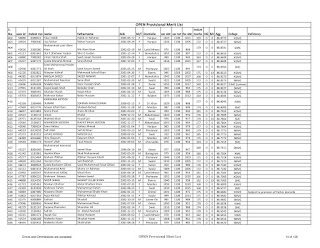Chap.13 Immunity MCQs
|
1. |
|
|
|
2. |
The
study about immune system is called: (a)
Gerontology (b)
Herpetology (c)
ichthyology (d)
Immunology |
D |
|
3. |
In
humans, the is the largest organ of
the integumentary system. (a)
Liver (b) Spleen (c)
Pancreases (d) Skin |
D |
|
4. |
Which
one of the following is included in first line of defense? (a)
Skin (b)
Digestive tract (c)
Mucous and Cilia (d) All of these |
D |
|
5. |
Skin
is involved in (a)
Providing Insulation (b)
Sensation (c)
Temperature Regulation (d) All of
these |
D |
|
6. |
Which
one of the following is non-specific defense? (a)
First line of defense (b)
Second line of defense (c)
Third line of defense (d)
Both a and b |
D |
|
7. |
Epidermal
dendritic cells are present in: (a)
Skin (b)
Pancreas (c)
Liver (d) All of
these |
A |
|
8. |
Dermis
contain protein fibers called: (a)
Keratin (b) Collagen (c)
Actin (d) All of
these |
D |
|
9. |
Which
one of the following produce oil? (a)
Sweat Gland (b)
Sebaceous Gland (c)
Both a and b (d)
None of these |
B |
|
10. |
Which
of the following are integumentary gland? (a)
Sweat Gland (b)
Sebaceous (c)
Both a and b (d)
None of these |
C |
|
11. |
Sweat
gland secrete sweat which contain: (a)
Salt (b) Lysozyme (Enzyme (c)
Urea (d) All of these |
D |
|
12. |
Skin
is in nature due to sebaceous gland. (a)
Acidic (b) Basic (c)
Neutral (d) None of
these |
A |
|
13. |
Cilia
and hair filter out dangerous particles in incoming air like: (a)
Bacteria (b) Pollen
Grain (c)
Dust Particle (d) All of these |
D |
|
14. |
All
of the following are parts of the first line of defense of the immune system
except: (a)
Leukocytes (b) Skin (c)
Stomach Acid (d) Mucus |
A |
|
15. |
All
of the following are true of the second part of the first line of defense of
the immune system except: (a)
Increased production of histamine (b)
Phagocytes (c)
Stomach Acid (d)
Inflammatory Response |
C |
|
16. |
Which
of the following initiate the clotting process? (a)
Plasma (b) White
Blood Cells (c)
Red Blood Cells (d) Platelets |
D |
|
17. |
Fluid
collected on the clot is like plasma except that it has no: (a)
Water (b)
Hemoglobin (c)
Red Blood Cells (d) Fibrinogen |
C |
|
18. |
During
the clotting process, fibrinogen is converted into: (a)
Thromboplastin (b) Prothrombin (c)
Fibrin (d) Thrombin |
C |
|
19. |
The
blood without its cells is: (a)
Serum (b) Plasma (c)
Lymph (d) Fibrinogen |
B |
|
20. |
Some
special type of blood proteins that provide immunity against certain diseases
are: (a)
Antibodies (b) Antigens (c)
Hormones (d) Blood
Clotting Protein |
A |
|
21. |
The
worn out and old blood cells are destroyed in: (a)
Spleen and Liver (b) Kidney (c)
Bone Marrow (d) Pancreas |
A |
|
22. |
All
of the following are part of the first line of defence of the immune system
except: (a)
Leukocytes (b) Skin (c)
Stomach Acid (d) Mucus |
A |
|
23. |
All
of the following are true of the second line of defence except: (a)
Increased Production of Histamine (b)
Phagocytes (c)
Stomach Acid (d)
Inflammatory Response |
C |
|
24. |
All
of the following are correct about the immune system except: (a)
The first line defence is non specific (b)
The second line defence is non specific (c)
Macrophages engulf huge number of microbes (d)
T-lymphocytes release antibodies |
D |
|
25. |
Which
of the following is true abouthistamine? (a)
It is part of the body's first line of defence (6)
It kills the germs by dissolving them (c)
It causes sneezing and a running nose in an attempt to rid the body of germs (d)
It is a toxin released by microbes or germs |
C |
|
26. |
Certain
danger in a blood transfusion comes
when the: (a)
Recipient has antigens to the donor blood (b)
Recipient has antibodies to the donor blood (c)
Donor has antibodies to the recipient's blood (d)
Donor has antigens to the recipient's antigens |
B |
|
27. |
All
of the following are autoimmune diseases except (a)
Arthritis (b)
Lupus (c)
Scleroderma (d)
AIDS |
D |
|
28. |
Antibodies
are: (a)
Memory Cells (b)
Plasma Cells (c)
Specitic (d)
Part of First Line of Defence |
B |
|
29. |
Which
is an example of passive immunity? (a)
Life Long Immunity (b)
Babies who are nursing receive antibodies from their mother (c)
You become resistant to a viral infection once you have recovered from it (d)
You become resistant to mumps after receiving the mumps Vaccine |
B |
|
30. |
Which
of the following are true about the immune system? (a)
Vaccines can cure certain common viral infections (b)
Allergies can be cured by antibodies (c)
Multiple sclerosis is caused by an allergy (d)
Arthritis is an autoimmune disease |
D |








Comments
Post a Comment